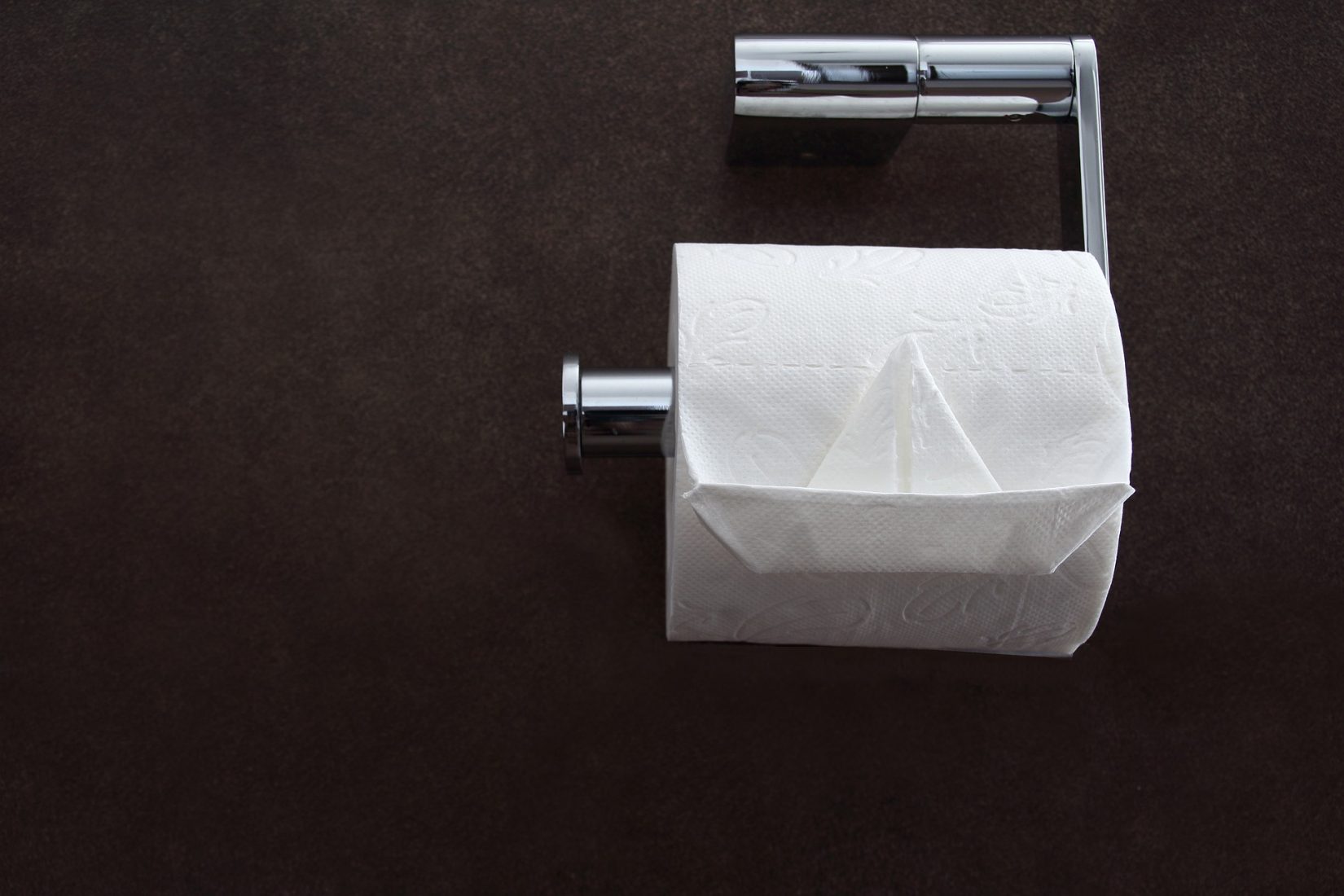Caring for Constipation

Talking about poop may be awkward, but today we are going to do it.
Everybody poops. Surprisingly, due to the hectic lifestyle of many university students, having infrequent bowel movements (BMs) is actually very common.
Substituting junk food for meals, not drinking enough water, sitting at your computer all day, or being overly stressed can all contribute to constipation. Basically, just being a student can cause a backup in your system.
What is constipation?
To be considered constipated, someone must have fewer than three BMs in a week.
Constipation in absence of other painful symptoms is not something to be overly concerned about and can usually be treated with some simple habit updates.
How to: poop more
If you are experiencing recurrent constipation, implementing a few changes to your routine may help curb these symptoms and get you back to regular bathroom trips.
1. Follow a high-fibre diet or consider taking a fibre supplement
- Fibre is great for BMs because it adds bulk and holds onto water; this makes your stools softer and easier to pass.
- Choose whole vegetables and fruits instead of juice
- Add fresh or frozen berries to cereal and yogurt
- Choose whole grain breads that have at least 2 grams of fibre per slice
- Use high fibre cereal like bran with at least 4 grams of fibre per serving
- Add dried fruits to yogurt, salads and homemade muffins
- Add lentils or beans to soups, casseroles and salads
If you’re having difficulty adding enough high-fibre foods into your diet, using a fibre supplement like Metamucil or Benefibre according to the instructions will improve regularity too.
2. Drink plenty of fluids
Dehydration is one of the most common causes of constipation. When your body is dehydrated, it pulls more water from your food waste to preserve it for your bodily needs. This absorption causes your stools to be hard and dry, making them more difficult to pass. Stay hydrated folks!
3. Get regular exercise
Exercise stimulates the natural contraction of your intestinal muscles. This process decreases the amount of time it takes for food to move through your system which prevents excessive water absorption from your bowels.
4. Implement some stress coping mechanisms
Stress provokes inflammatory hormones to act on the intestines which contributes to the symptom of abdominal fullness associated with constipation.
The stress response also causes blood to be diverted from your digestive system to vital organs like your lungs, heart, and brain. This diversion slows down your intestinal movement, causing constipation.
Everyone deals with stress differently. If you are unsure of where to start on decreasing stress, you can visit the stress management or the self-help resources page from the Student Wellness Centre.
5. Don’t ignore “the urge”
Consistently ignoring the need to go increases your chances of developing chronic constipation. By holding it in, the nerves in your rectum will eventually stop signalling your brain when you have a regular stool; the urge will only occur when the volume of stool is large and difficult to pass.
When it comes to the urge, if you don’t use it, you might lose it.
6. Consider creating a BM schedule
Your body loves routine. If your body is not consistently signalling you to poop, schedule it in. Sitting on the toilet for at least 10 minutes about an hour after breakfast, even if you don’t poop, can help regulate your schedule.
What to avoid to keep yourself regular
-
Eating too much processed food
Following recommendations for introducing high fibre foods, and following a healthy diet is particularly important if you’re experiencing constipation. No particular food groups should be taken out of your diet.
However, processed foods do not aid in establishing regular BMs. Avoid overconsumption of microwaveable meals, sugary cereals, cookies, and pastries.
-
Alcohol
Frequent use of alcohol, or during times of constipation, will dehydrate the system further, making symptoms even worse.
-
Sitting too much
In contrast to exercising, sitting too much will slow digestion and lead to more water absorption, causing hard and dry stools.
-
Consistent use of laxatives
While some people may tend to reach for laxatives when constipated, complications may arise with frequent use. For example, overuse of laxatives can lead to dependence on the drug for all BMs.
For this reason, laxatives should only be used short-term and for severe cases of constipation. It might be time to consult a medical provider if consistent laxative use is required to prevent constipation.
When to seek professional support
Even though it might be scary, you probably do not need to see a doctor if you have occasional constipation. You may want to see a doctor if you:
- Are concerned about your constipation
- Have a sudden change in bowel movements
- Plan on taking laxatives or
- Take medications that can cause constipation, but dietary changes do not help
You can book an appointment with a doctor or nurse at the Student Wellness Centre about any medical or stress related concerns by calling 905-525-9140 ext 27700.
Wrapping up
Although it can be uncomfortable to talk about your pooping problems, please do not avoid getting support. Constipation is common, especially with university students, so do not be embarrassed. Not addressing your constipation can put you at risk for complications; feel free to use these tips to get regular. Visit the websites below for more information on constipation and more tips.
Happy pooping!
Written by: Summer Clarke
Additional information on symptoms, causes, and seeking professional treatment:
https://www.unlockfood.ca/en/Articles/Fibre/Constipation-in-Adults.aspx
Personalized tips from a university student on methods of relieving constipation:
https://spoonuniversity.com/lifestyle/11-reliable-ways-to-relieve-constipation
References
https://health.williams.edu/medical-diagnoses/general-health-concerns/constipation/
https://spoonuniversity.com/lifestyle/11-reliable-ways-to-relieve-constipation
https://www.unlockfood.ca/en/Articles/Fibre/Constipation-in-Adults.aspx
Food & Nutrition, Physical Health
